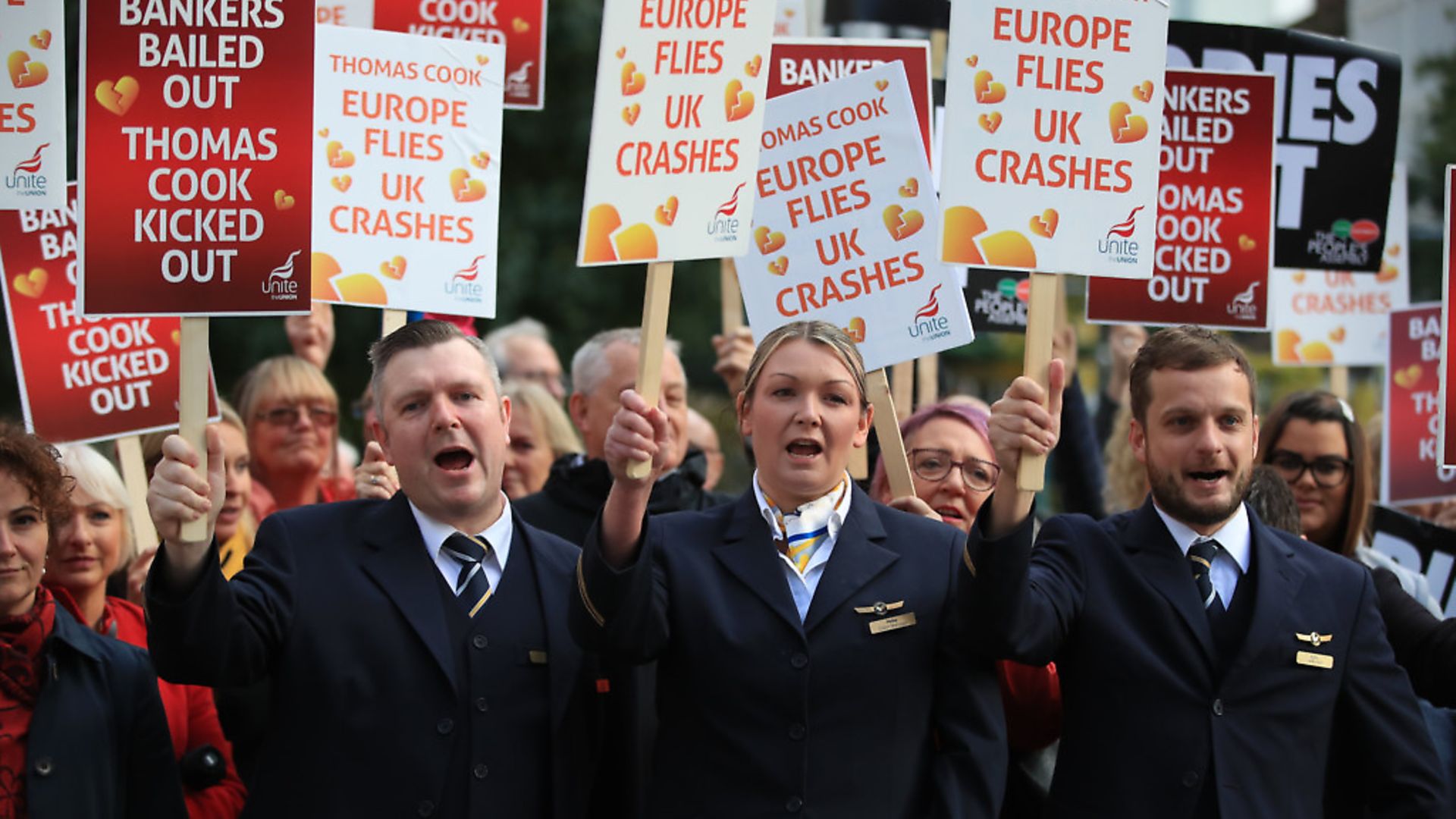
Liberal Democrat MEP ANTONY HOOK addresses Euroscpetic claims that the EU was the reason the government didn’t bail out Thomas Cook.
On the 23rd of September, one of the UK’s largest and oldest travel firms Thomas Cook fell into liquidation, putting over 2,000 staff out of a job. In the national outcry that followed, the question on many people’s lips was: why didn’t the government step in?
Thomas Cook had asked the Department for Business and Industry to provide a bridging loan of £200 million which, it claimed, would have allowed it to secure additional investment and continue trading. The eventual cost to the British taxpayer to bring the firm’s stranded holidaymakers home was estimated at £100 million, so stepping in would have seemed to be the obvious course of action, given how many jobs could be saved.
Sadly, the government refused.
Former Thomas Cook pilot, Karl Plummer, was one of hundreds who took to social media and the airwaves to argue: “State aid is apparently not permitted by the EU but the UK seems to be the only country that takes any notice”.
His concerns seemed to be justified when the German government announced a rescue plan for Condor, a Frankfurt-based subsidiary of Thomas Cook, which now lives to fly another day.
I received letters from constituents, querying why the EU was apparently allowing government to support the German wing but not the UK company.
I wrote to the secretary of state for business Andrea Leadsom to find out. The reply I received said, “the government did not agree to offer financial assistance to Thomas Cook because there was no guarantee, given the perilous state of the company’s finances, that an injection of additional capital would have secured the future of the company”.
The letter went on to say tritely: “Unfortunately, in a competitive market, companies do fail.”
The minister, herself a committed Leaver, could not have made it clearer. This was a decision by the UK not by the EU and did not attempt to suggest otherwise.
It is no real surprise that vocal Eurosceptics took to Twitter wrongly denouncing the EU for causing the company to fail. To those who want Brexit, come what may, this narrative (“the EU is stopping us riding to the rescue”) holds obvious appeal and criticism of the EU is rarely questioned.
An irony of this situation is that the bigger threat to British business is the wild west that awaits, if Brexit happens, as we attempt to negotiate free trade agreements with the rest of the world. What demands will Donald Trump require in return for a free trade agreement? Any free trade agreement is likely to require the signatories to refrain from providing state aid to industry in direct competition with counterparts from the other country. In other words, UK businesses may find themselves unable to access future government support if the terms of the trade deal forbid it. President Xi Jinping or prime minister Narendra Modi are unlikely to allow a weakened Britain much breathing space in a post-Brexit negotiation.
The absurd outcome of Brexit will be that the UK will become beholden to powerbrokers with whom we share far less in common by way of workers’ rights and environmental responsibility.
The loss of Thomas Cook is a blow to British business and to holidaymakers left stranded and out of pocket. The decision not to rescue it was made in the UK not the EU.
Unfortunately, the impact of Brexit is likely to make the travel agent’s collapse seem like an afternoon doze on a Mediterranean sunbed.









